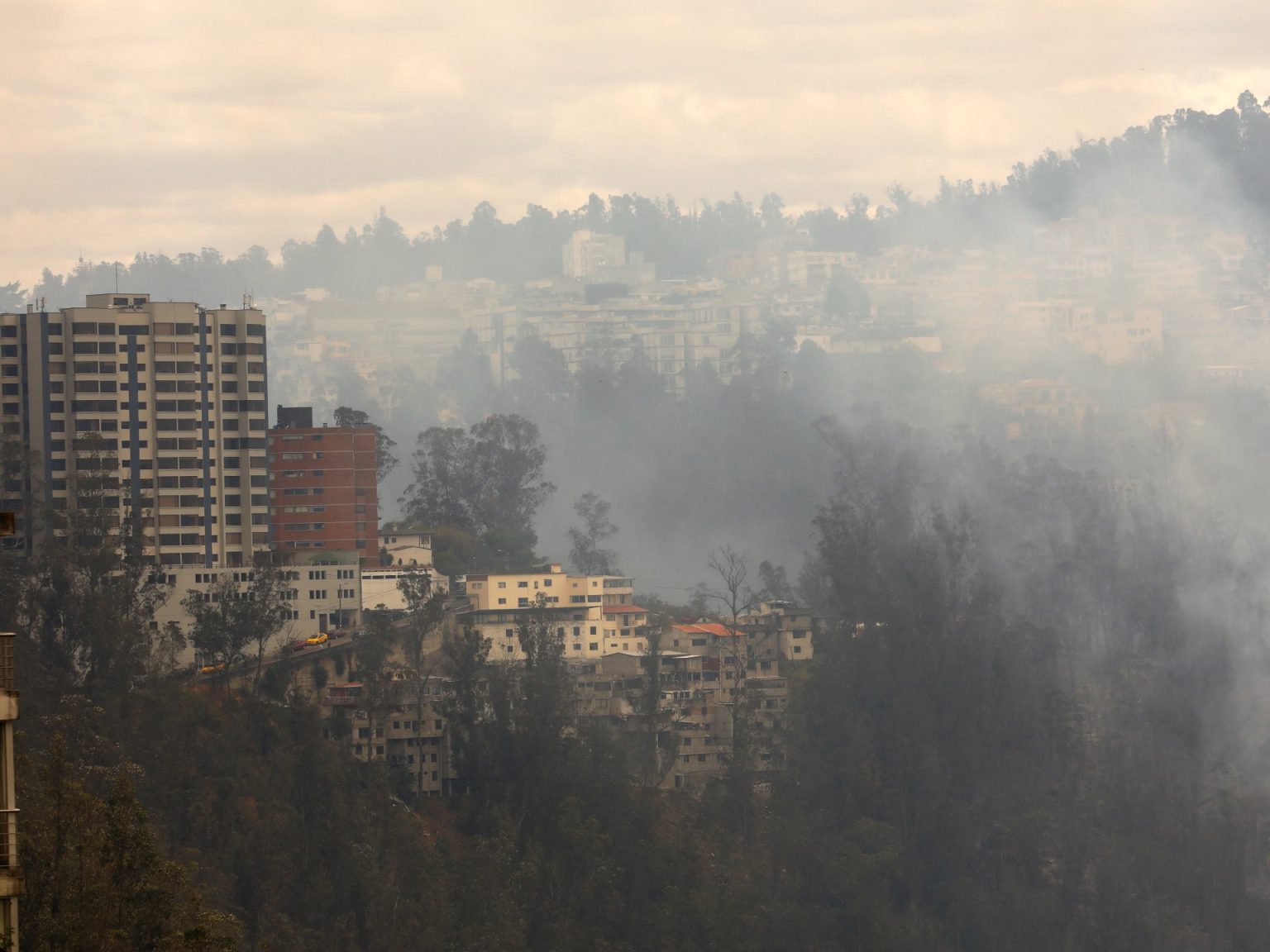Around 2,000 firefighters, rescue workers, and military members are working tirelessly to contain wildfires raging around the capital of Ecuador, Quito. The fires have resulted in the city being covered in smoke and ash, leading to the evacuation of residents and various injuries. Quito Mayor Pabel Munoz stated that the fires are expected to continue into the night, with lower nighttime temperatures possibly aiding the firefighting efforts. The severity of the situation was described as “critical” by Munoz, with two firefighters already injured in their battle against the flames.
The wildfires in Ecuador are part of a larger issue affecting several South American nations, including Brazil, Colombia, Venezuela, Bolivia, and Peru, all grappling with record-setting blazes due to severe drought. The impact of the fires has been devastating for many residents, with homes being destroyed, as highlighted by the story of 23-year-old mechanic Alexis Condolo, who lost his home in the fires. Quito’s fire department has been actively involved in combating the blazes by dropping water on the affected areas and urging residents to avoid actions that could exacerbate the situation.
The situation in Ecuador is further exacerbated by the country facing its worst drought in over six decades, highlighting the vulnerability many nations are facing under extreme weather conditions amplified by climate change. The widespread fires in South America have prompted urgent calls for action from leaders in the region to prevent a climate catastrophe that could have irreversible consequences for humanity and the planet. Brazil has already taken steps to support the reimposition of daylight savings time to mitigate the effects of the drought on hydroelectric power generation, while countries like Peru have declared a state of emergency in provinces affected by wildfires.
The impact of the drought and wildfires is also being felt in other South American countries, with Ecuador experiencing blackouts due to strains on the country’s energy capacity. Additionally, shipments of grain in Argentina and Brazil have slowed down as river levels drop, further highlighting the interconnected effects of the climate crisis on various sectors. The need for urgent action to address the underlying causes of these environmental disasters is underscored by organizations like Amnesty International, calling on leaders to prioritize prevention measures to avoid irreversible consequences for both humanity and the planet as a whole.


